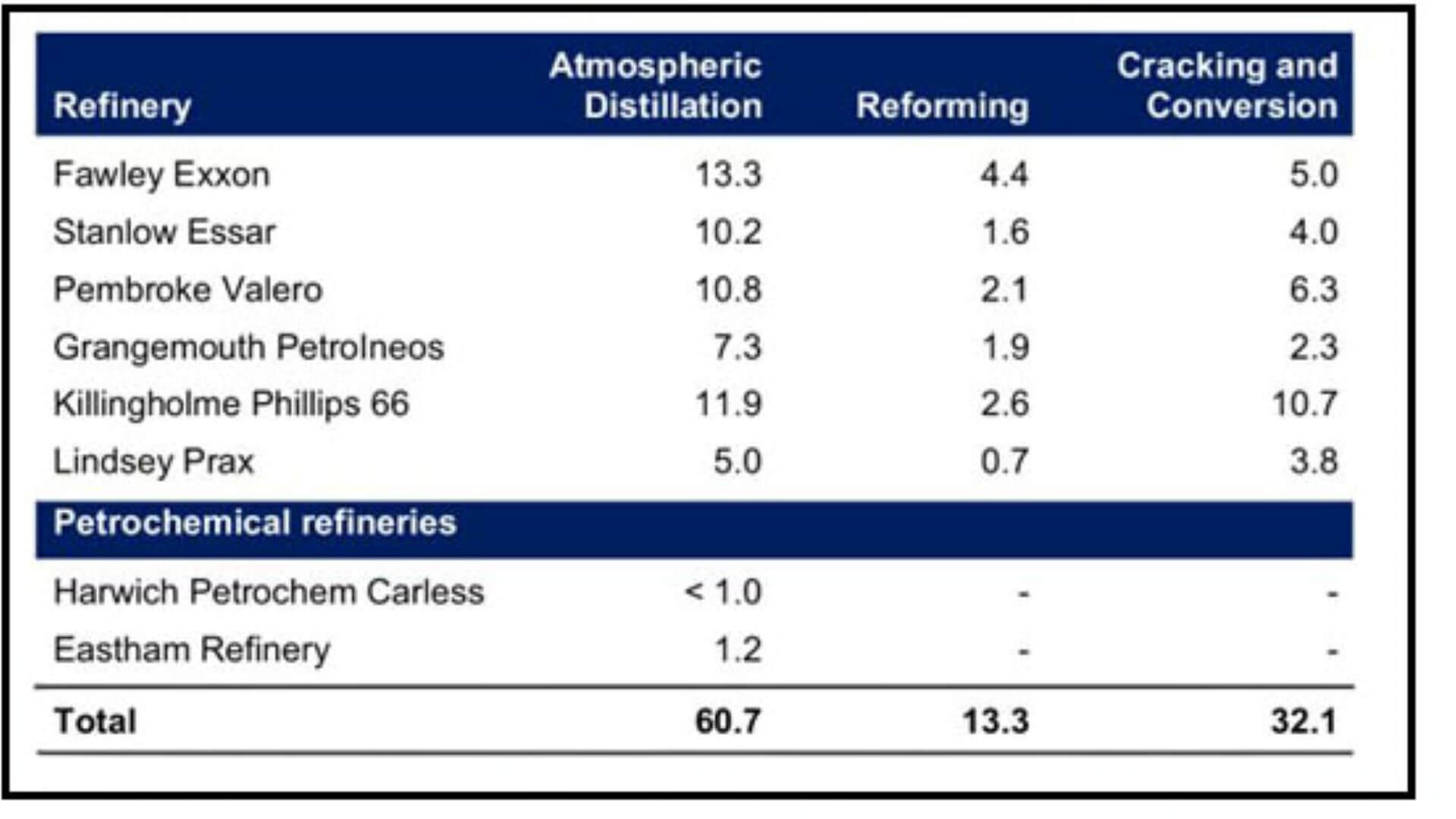UPDATED 1 Sept: The EI library in London is temporarily closed to the public, as a precautionary measure in light of the ongoing COVID-19 situation. The Knowledge Service will still be answering email queries via email , or via live chats during working hours (09:15-17:00 GMT). Our e-library is always open for members here: eLibrary , for full-text access to over 200 e-books and millions of articles. Thank you for your patience.
Grangemouth refinery to close as part of transition plans
Petroineos is planning to cease operations at the Grangemouth refinery, Scotland’s last, and transition to a finished fuels import terminal and distribution hub.According to the Scottish government, the decision follows increased global market pressures and competition from bigger, more modern and efficient sites in the Middle East, Asia and Africa, with the company reporting more than $775mn in losses since 2011.
The transition is expected to take place during 2Q2025, subject to consultation with employees. Petroineos reports that the petrochemical manufacturing operations of Ineos Olefins & Polymers (O&P) UK and Ineos FPS (Forties Pipeline System, the integrated oil and gas liquid transportation and processing system operating from the Central North Sea to the Central Belt in Scotland) will continue as normal and will be ‘largely unaffected’. The move comes as the company looks to secure a long-term future for the site on the Firth of Forth while delivering on its commitment to reach net zero by 2045.
Petroineos’ decision to convert to an import terminal means that its fuel supply will now be maintained by importing refined products directly, rather than importing crude oil to refine on site. The UK has been a net importer of refined products since 2013, with imports accounting for 51% of UK demand for all petroleum products in 2023, according to the Scottish government.
Following Petroineos’ announcement, the Scottish and UK governments unveiled a joint investment plan that aims to ‘help secure Grangemouth’s industrial future and protect its skilled workforce’. The plan includes £20mn in joint funding, on top of the £80mn already announced under the Falkirk and Grangemouth Growth Deal, and ‘immediate tailored support to help affected workers find new employment’.
The two governments also report that the £1.5mn joint-funded Project Willow study identifies a shortlist of three credible options to begin building a new long-term industry at the Grangemouth refinery site, including low-carbon hydrogen, clean e-fuels and sustainable aviation fuels.
Reflecting on the announcement, Scottish Cabinet Secretary for Net Zero and Energy Gillian Martin said: ‘The Scottish government has consistently made clear our preference was for refining to continue as long as possible, and we have continued to press the shareholders for a positive decision until the 11th hour. This significant package of support combines immediate help for affected workers and a long-term contribution to ensure that Grangemouth continues to thrive in the future. We are clear that there should be a just transition for the refinery site and we remain committed to bringing forward low-carbon opportunities that will sustain skilled jobs across the wider area for many years to come.’
UK government Energy Secretary Ed Miliband added: ‘Unlike in the past, the government is working in lockstep with the Scottish government across every front. Workers and their families should be in no doubt this is a government that stands with workers, trade unions, and businesses to fight for jobs and investment in Scotland.’
Grangemouth refinery is one of eight refineries in the UK and the only refinery in Scotland (see Fig 1). It provides 4% of the nation’s GDP and 8% of its manufacturing base, according to the Unite trade union.

Fig 1: UK refinery nameplate capacity as of May 2023, in mn t/y
Source: Crude oil and petroleum products: methodology note, p14, Department for Energy Security & Net Zero
Unite claims the closure puts ‘in jeopardy the jobs of the 500 workers directly employed at [the refinery] and thousands more in the supply chain’, and has vowed ‘to explore all avenues to preserve high quality jobs at Grangemouth’.
Commenting that ‘the road to net zero cannot be paid for with workers’ jobs’, Unite General Secretary Sharon Graham added: ‘The complex is critical to the nation’s manufacturing base and energy security. The governments involved cannot simply hide behind the convenient smokescreen that this is a commercial decision which they couldn’t influence.’
Meanwhile, Elizabeth de Jong, Chief Executive Officer of the downstream association Fuels Industry UK, said: ‘We are very sad to hear that Grangemouth refinery is planning to become a fuels import terminal. As we have told government, the fuels sector is vital for the nation’s energy security and net zero ambitions but faces difficult investment conditions in the UK... Today’s announcement must be a wake-up call for government to work more closely with us and our member companies to address the long-term challenges facing the sector.’
